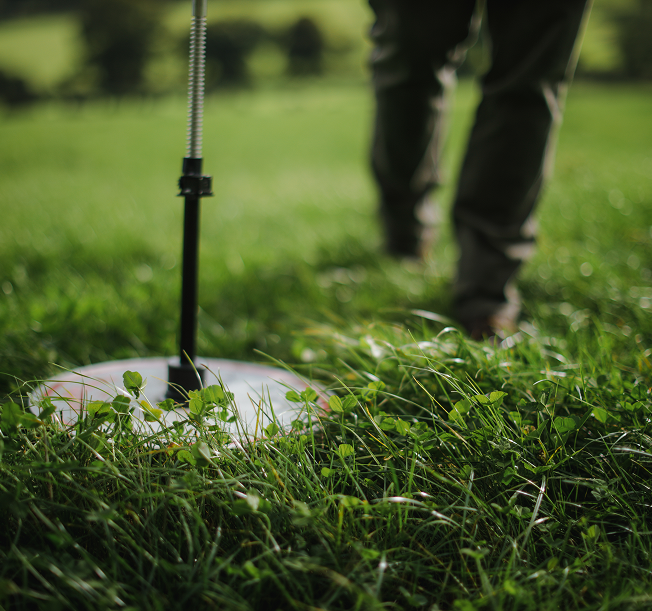The benefits of organic farming:
why choose organic beef and lamb
Organic as a sustainable solution - Better for the planet
- Organic means working with nature, not against it.
- The benefits of organic production methods on the environment and biodiversity have been scientifically proven.
- Organic farming lowers the risk of environmental pollution and helps reduce greenhouse gas emissions by severely restricting the use of manufactured chemical fertilisers and pesticides.
- Organic farmers work within natural systems and cycles at all levels, from the soil to plants and animals.
- Organic farms are more ecologically diverse than non-organic farms.
- Organic farming supports the livelihoods of smallholder farmers in low-income countries.

Organic farming is better for soil
Organic farms
Carbon Sequestration
Soils on organic farms sequester around 1.6 tonnes of carbon per hectare each year.
The use of organic fertilizer like composted waste from livestock husbandry, improved crop varieties and rotations, reduced tillage and planting of cover crops contribute to the increased carbon storage.
Climate Resilience
- Farming organically can protect against flooding because organic soils store twice as much water.
- Organic soils perform better during drought than non-organic soils.
Source: IFOAM, 2023
Why soil matters in organic farming
Keeping soils fertile and preventing soil erosion is a challenge for all farmers. Instead of using artificial fertilisers, organic farmers look after their soils using manure, compost, ‘cover crops’ and crop rotations. Around the world, we are losing soil much faster than it’s formed, alarmingly between 10 and 40 times faster. 95% of our food production relies on soil, so it has never been more crucial to farm in a way that protects and preserves the soil.
- Organic farming is better for the long-term health of the soil.
- Organic farms have a more diverse range of microbes living in the soil – this helps the crops to grow without artificial fertilisers.
Organic farming is better for wildlife
Pollinators play a crucial role in agriculture, with 76% of globally important commercial crops and three quarters of food crops depending on insect pollination. However, animal pollinators, essential for agricultural production, are in decline. This decline is largely attributed to intensive farming practices, particularly the heavy use of pesticides, which significantly impact insect populations.
Better for Animals: Organic animal husbandry and welfare
Animal welfare is one of the most important aspects of organic farming. Organic standards insist that animals are given plenty of space and fresh air, and that they are raised in conditions that suit their natural behaviour. Smaller flocks and herds, and more access to the outdoors means organic animals don’t have to be routinely treated with antibiotics and wormers.
Organic standards for animal welfare:
Access to pasture:
Have access to pasture when weather and ground conditions permit.
Ample space:
Have ample space both indoors and outdoors, reducing stress and disease.
Natural grazing:
Graze and forage naturally on organic pasture.
No antibiotics:
Are not routinely given antibiotics.
Certified Organic
Find out more about the organic certification process of our products.
Fundamentals
Discover the principles of livestock rules to market products as organic.
Animal Welfare
Find out more about animal welfare in organic livestock systems.